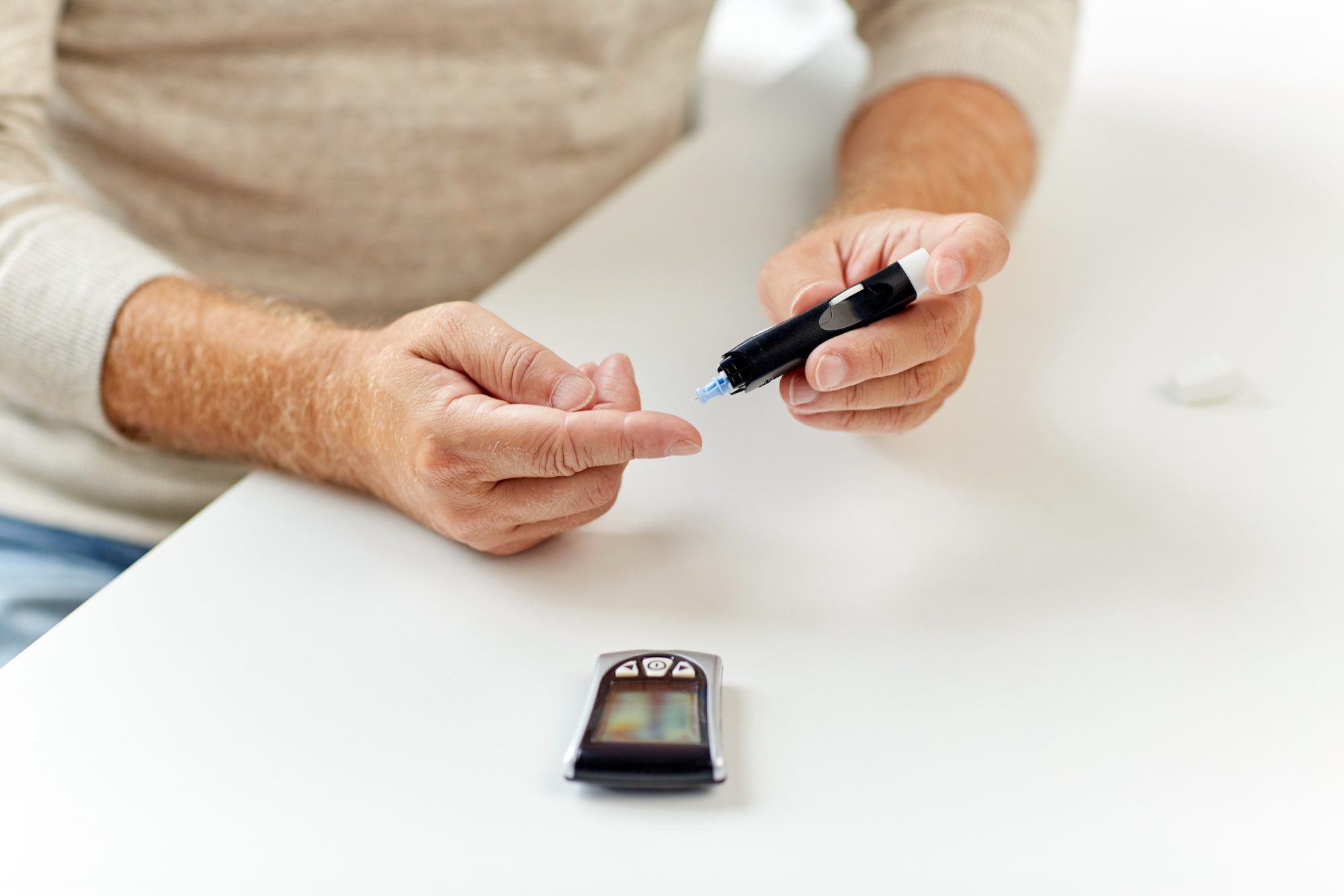Study: Obesity Drug Halves Risk of Developing Type 2 Diabetes
دراسة: جرعة أسبوعية من دواء للسمنة تقلل خطر الإصابة بمرض السكري إلى النصف
QNA
Washington: An obesity drug given in weekly jabs more than halves the risk of developing type 2 diabetes, a landmark review suggests.
Patients can inject themselves with semaglutide, which works by hijacking the brain to suppress appetite and slash calorie intake.
Overweight and obese participants given the regular doses saw their odds of suffering the condition fall by up to 61 per cent.
The drug, called Wegovy, has been approved for use in England after it was shown to help patients lose an average of 15 per cent of their body weight, equal to 2st 7lb, the Daily Mail reported.
Around 4.5million people are living with type 2 diabetes in England, which costs the NHS more than Pound Sterling 10billion a year.
Researchers carried out a new analysis of data from two previous trials of semaglutide to assess its impact on the condition.
Study leader Dr Timothy Garvey said the average weight loss of 15 per cent was sufficient to treat or prevent a broad array of obesity complications that impair health and quality of life. He added that this effect is a game changer in obesity medicine.
In the first trial, 1,961 overweight and obese patients received an injection of 2.4mg of semaglutide or a placebo weekly for 68 weeks.
In the second, another 803 overweight and obese participants received weekly injections of 2.4mg semaglutide for 20 weeks. Then these patients either remained on the drug or switched to a placebo for the next 48 weeks. All participants received advice on diet and exercise.
The researchers from the University of Alabama, US, used a formula called cardiometabolic disease staging to predict the risk of developing type two diabetes in the next decade. This calculation has been shown to be a highly accurate measure of risk and accounts for sex, age, race, body mass index and blood pressure plus blood glucose and cholesterol levels.
The ten-year risk scores for participants receiving semaglutide in the first trial fell by 61 per cent from 18.2 per cent at the start to 7.1 per cent at week 68.
This compared to a 13 per cent drop in risk for those given the placebo, from 17.8 per cent at the start to 15.6 per cent at week 68. (QNA)The researchers from the University of Alabama, US, used a formula called cardiometabolic disease staging to predict the risk of developing type two diabetes in the next decade. This calculation has been shown to be a highly accurate measure of risk and accounts for sex, age, race, body mass index and blood pressure plus blood glucose and cholesterol levels.
The ten-year risk scores for participants receiving semaglutide in the first trial fell by 61 per cent from 18.2 per cent at the start to 7.1 per cent at week 68.
This compared to a 13 per cent drop in risk for those given the placebo, from 17.8 per cent at the start to 15.6 per cent at week 68.
قنا
واشنطن: كشفت دراسة جديدة، أن تناول دواء جديد لعلاج السمنة بجرعات أسبوعية يقلل من خطر الإصابة بمرض السكري من النوع الثاني بمقدار النصف، ويساعد في فقدان الوزن، بحسب ما نشر موقع جريدة “ديلي ميل” البريطانية.
ويمكن للمرضى حقن أنفسهم بدواء سيماجلوتيد، والذي يعمل عن طريق مساعدة الدماغ لقمع الشهية وخفض مدخول السعرات الحرارية.
ولاحظ الباحثون، الذين يعانون من زيادة الوزن والسمنة والذين تلقوا جرعات منتظمة أن فرصهم في تطوير الحالة انخفضت بنسبة تصل إلى 61 بالمئة.
وتمت الموافقة على الدواء للاستخدام في إنجلترا بعد أن ثبت أنه يساعد المرضى على فقدان ما معدله 15 بالمئة من وزن الجسم.
وأجرى الباحثون تحليلا جديدا للبيانات من تجربتين سابقتين للعقار سيماجلوتيد لتقييم تأثيرها على الحالة.
وقال الدكتور تيموثي غارفي رئيس الدراسة، إن متوسط ??فقدان الوزن بنسبة 15 بالمئة “كان كافيا لعلاج أو منع مجموعة واسعة من مضاعفات السمنة التي تضعف الصحة ونوعية الحياة”، مضيفا أن هذا التأثير “يغير قواعد اللعبة في علاج السمنة”.
وفي التجربة الأولى، تلقى 1961 مريضا يعانون من زيادة الوزن والسمنة حقنة 2.4 ملغ من سيماجلوتيد أو دواء وهمي أسبوعيا لمدة 68 أسبوعا.
وفي تجربة أخرى تلقى 803 مشاركين آخرين يعانون من زيادة الوزن والسمنة حقنا أسبوعية من 2.4 ملغ من سيماجلوتيد لمدة 20 أسبوعا، ثم ظل هؤلاء المرضى يتناولون الدواء أو تم تحويلهم إلى الدواء الوهمي لمدة 48 أسبوعا التالية. تلقى جميع المشاركين المشورة بشأن النظام الغذائي والتمارين الرياضية.
واستخدم الباحثون من جامعة ألاباما بالولايات المتحدة صيغة تسمى تحديد مراحل مرض القلب والأوعية الدموية للتنبؤ بخطر الإصابة بمرض السكري من النوع الثاني في العقد المقبل، وقد ثبت أن هذا الحساب مقياس دقيق للغاية للمخاطر ويراعي الجنس والعمر ومؤشر كتلة الجسم وضغط الدم، بالإضافة إلى مستويات الجلوكوز والكوليسترول.
وانخفضت درجات المخاطر لمدة عشر سنوات للمشاركين الذين تلقوا سيماجلوتيد في التجربة الأولى بنسبة 61 بالمئة من 18.2 بالمئة في الأساس إلى 7.1 بالمئة في 68 أسبوعا، هذا بالمقارنة مع انخفاض بنسبة 13 بالمئة في المخاطر لأولئك الذين تناولوا الدواء الوهمي، من 17.8 بالمئة في الأساس إلى 15.6 بالمئة في الأسبوع 68.
وأظهرت نتائج التجربة الثانية الحاجة إلى استمرار العلاج للحفاظ على انخفاض خطر الإصابة بالنوع الثاني من مرض السكري.
وسيتم عرض النتائج في الجمعية الأوروبية لدراسة مرض السكري في ستوكهولم بالسويد، الأسبوع المقبل.




